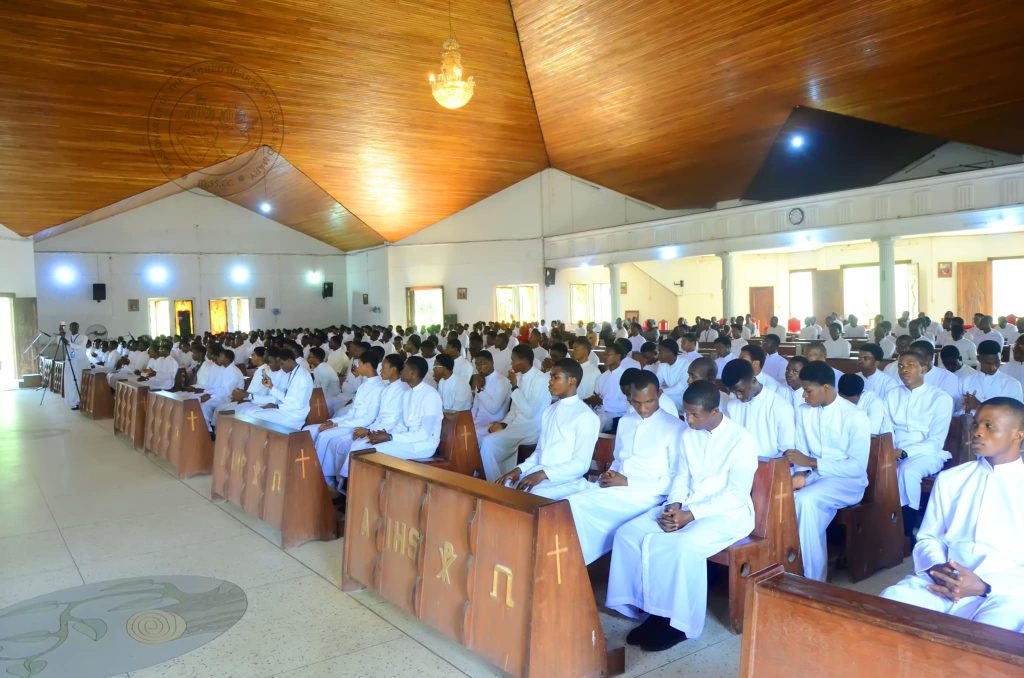First Reading: Baruch 5: 1-9
Responsorial Psalm 126
Second Reading: Philippians 1: 4-6, 8-11
Gospel: Luke 3:1-6
Advent is a time of preparation of our hearts for Jesus by turning away from sin and from whatever is contrary to the way of discipleship. The first reading from the book of Baruch is a call to hope as we prepare for the coming of Christ. He compares Jerusalem to a widow weeping over her children who had been taken into exile. The people of God had been in exile on account of their transgression in Babylon. It was a time of hopelessness and despair. But suddenly the prophet began to speak a message of hope and restoration. The people must now get ready because God will soon intervene to bring His people back in splendor and glory. Judah must take off her robe of mourning and misery; and put on the splendor of glory from God. The metaphor of putting off the garment of mourning and misery and putting on a cloak of glory from God speaks about the restoration that God brings to His people, a restoration that is far greater than what they had earlier.
The responsorial Psalm (126) echoes the theme of joy and restoration. This psalm is attributed to the time of the Babylonian exile and reflects the joy that comes from restoration, “When the Lord brought back the captives of Zion, … our mouth was filled with laughter, and our tongue with rejoicing.” It is a joy so great that caused even the nations to acknowledge the great things the Lord has done for His people.
The imagery of sowing in tears and reaping in joy symbolizes on the one hand, the trials and tribulations of God’s people and on the other hand, the promise of joy and abundance that awaits those who persevere in faith. It reminds us that despite any trials we may be facing, there is profound joy awaiting if we persevere.
The gospel today invites us to reflect on the ministry of John the Baptist. John was a voice crying in the desert, “Prepare the way of the Lord, make straight his paths. Every valley shall be filled, and every mountain and hill shall be made low. The winding roads shall be made straight, and the rough ways made smooth.” These words from Isaiah 40:3 echoe the exodus from Egypt when God intervened and saved His people from slavery, and they journeyed through the desert to the promised land. The exodus from Egypt became the prototype of all God’s saving interventions on behalf of His people.
After settling in the Promised land, Israel did not remain faithful to God. As a punishment, God allowed them to be defeated by their enemies and taken into exile. The prophets announce a day of salvation when God will again intervene and save His people.
When God saved the twelve tribes of Israel from slavery in Egypt, they made their way through the desert to the promised land so that preparing a way in the desert became a sign that God is again about to intervene and save His people. God is going to act with a power greater than the first exodus. It is not only Israel that will see the salvation of God, but “All flesh shall see the salvation of God.” This is a reminder that we are called to rejoice even now at the promise of salvation. This is the heart of the good news that we are called to share.
The imagery of valleys being filled, and mountains made low serves as a metaphor for the call to remove any attachment that may cloud our vision of God and every obstacle that may hinder us from following Jesus who is the leader of the new exodus. This calls for deep reflection and the need to go to the sacrament of reconciliation and so prepare our hearts for the coming of Jesus.
Happy Sunday,
Fr. Chidi Onwuka, m.ss.cc.

